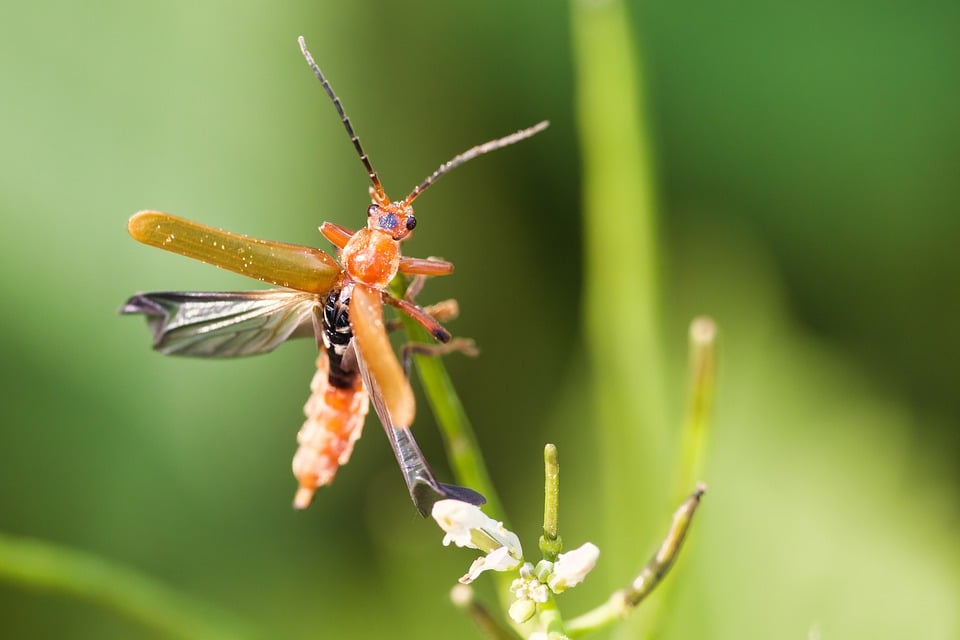As summer rolls in, nature invites us to revel in the warmth and beauty of the great outdoors. However, along with the longer days and blooming flowers, summer also brings an unwelcome guest: bugs. From mosquito bites that itch to tick-borne diseases, pests can turn a delightful picnic or a serene camping trip into a frustrating experience. In response to growing health concerns and environmental awareness, a new wave of natural bug repellents is gaining popularity as a sustainable alternative to traditional chemical-based products.
The Case for Going Green
The shift towards natural bug repellents reflects a broader trend towards eco-friendliness and sustainability. Traditional insect repellents often contain DEET (N,N-Diethyl-meta-toluamide), which has been linked to skin irritation and environmental harm. As consumers become increasingly aware of the potential risks associated with chemical pesticides, they are seeking effective but safer alternatives. Natural bug repellents not only help minimize chemical exposure but are also less harmful to the environment, making them an appealing choice for conscientious consumers.
The Benefits of Natural Ingredients
Natural bug repellents typically rely on essential oils and plant-based ingredients known for their insect-repelling properties. Here are some common natural ingredients and their benefits:
-
Lemon Eucalyptus Oil: Known for its pleasant scent, lemon eucalyptus oil is scientifically proven to be as effective as DEET in repelling mosquitoes. This oil contains compounds that disrupt the receptors in pests, making them less likely to bite.
-
Lavender Oil: Aside from its calming fragrance, lavender oil is believed to repel mosquitoes and other bugs. Its soothing properties make it a favorite for evening outdoor events, where relaxation is key.
-
Peppermint Oil: This invigorating aroma not only freshens up the air but also acts as an effective insect repellent due to its high menthol content, which is toxic to many common pests.
-
Tea Tree Oil: With its powerful antiseptic and antibacterial properties, tea tree oil is effective against mosquitoes, as well as ticks and other biting bugs.
- Cinnamon Oil: Cinnamon is not just a delicious spice; it also deters mosquitoes and other insects thanks to its strong scent and natural toxicity to pests.
Eco-Friendly and Safe for Families
Natural bug repellents are generally safer for families, including children and pets. Many commercial repellents contain warnings about potential side effects, particularly for vulnerable populations. In contrast, natural alternatives often use organic ingredients devoid of synthetic additives, making them a safer option for those long summer days spent outdoors.
Individuals can even create their own DIY bug sprays at home using simple recipes that often combine several of the aforementioned essential oils with a carrier oil or witch hazel.
Wellness and Holistic Living
As people increasingly gravitate towards holistic lifestyles, the natural bug repellent market fits seamlessly within this growing movement. Consumers are now more educated about the benefits of using natural products beyond just bug repellent. Many people view body care through a more comprehensive lens, seeking products that align with overall wellness and contribute to their health, as well as the health of the planet.
The Future of Natural Bug Repellents
With the rising demand for natural and eco-friendly products, companies are innovating and expanding their offerings. New formulations and blends are hitting the shelves, catering to diverse customer preferences. From sprays, lotions, and candles to incense sticks and wearables, the market for natural bug repellents is diversifying rapidly.
Additionally, awareness campaigns and educational initiatives are helping consumers make informed choices about what they apply on their bodies and their impact on the environment. As a result, the natural product industry is expected to continue growing, driven by continually evolving consumer preferences and a desire for sustainable living solutions.
Conclusion
This summer, as you prepare to enjoy the great outdoors, consider making the switch to natural bug repellents. These safe, effective, and environmentally friendly options not only keep pesky bugs at bay but also promote a healthier lifestyle for you, your family, and the planet. By choosing to "go green" this summer, you’re part of a larger movement advocating for sustainable practices and a healthier environment, allowing you to savor nature’s beauty while protecting your well-being. So, pack your picnic, lather on the natural repellent, and relish the joys of summer, unbothered by bugs!
